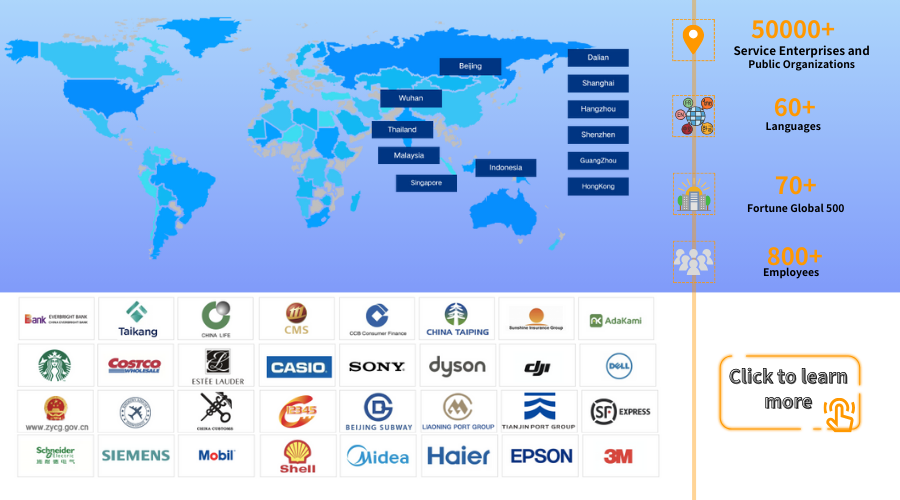Cloud Call Center: The Intelligent Choice for After-Sales Service in the Dairy Industry
文章摘要:In the highly competitive dairy product market, consumers are placing increasingly high demands on product quality and service experience. After-sales service, as a key link for enterprises to communicate with consumers, directly affects consumer satisfaction and loyalty, which in turn relates to an enterprise’s brand image and market competitiveness. Traditional after-sales service models are gradually revealing drawbacks such as low efficiency and delayed responses when dealing with massive customer inquiries, complaints, and complex business needs. The emergence of cloud call centers has brought a brand-new intelligent solution to the after-sales service of the dairy industry, leading the improvement of service standards in the sector.
Table of contents for this article
- I. Analysis of After-Sales Service Pain Points in the Dairy Industry
- II. Cloud Call Centers: Tailored for After-Sales Service in the Dairy Industry
- (I) Low-Cost and Efficient Deployment
- (II) Powerful Function Integration
- (III) Intelligent Customer Service
- (IV) Data-Driven Service Optimization
- III. Successful Practices of Cloud Call Centers in the Dairy Industry
- IV. Future Outlook: Cloud Call Centers Driving Service Upgrades in the Dairy Industry
I. Analysis of After-Sales Service Pain Points in the Dairy Industry
The dairy industry has a broad consumer base, covering people of all age groups and consumption levels. After purchasing dairy products, consumers may raise questions or complaints regarding product quality, nutritional components, shelf life, storage methods, distribution services, and more. For example, consumers might report quality issues like peculiar smells in purchased milk or damaged packaging, inquire about how to choose suitable dairy products for different age groups, or ask if delivery times can be adjusted. Faced with such diverse and complex customer needs, traditional after-sales service models often struggle to cope.
II. Cloud Call Centers: Tailored for After-Sales Service in the Dairy Industry
(I) Low-Cost and Efficient Deployment
Based on cloud computing technology, cloud call centers adopt an on-demand rental model, eliminating the need for enterprises to make large-scale hardware and software investments. Enterprises only need basic equipment such as computers, internet-connected devices, and headsets to quickly build a call center system. This deployment method significantly reduces the initial investment cost for enterprises, making it particularly suitable for small and medium-sized dairy enterprises with relatively limited funds.
(II) Powerful Function Integration
-
Intelligent Voice Response (IVR): The intelligent voice navigation function of cloud call centers can quickly guide customers to the corresponding service queue or self-service module based on their voice commands or keypad selections. In the dairy industry, customer calls may involve various business types such as product consultation, ordering, after-sales complaints, and delivery inquiries. Through intelligent voice navigation, the system can automatically identify customer needs and accurately route customers to the corresponding customer service staff or self-service process, greatly improving the efficiency of call handling. For instance, when a customer calls to inquire about the nutritional components of a certain milk powder, intelligent voice navigation can directly transfer the customer to a service staff member familiar with product knowledge or guide the customer to obtain relevant information through voice inquiry. This avoids blind waiting and transfers between different service links, enhancing the customer experience.
-
Automatic Call Distribution (ACD): This function can automatically assign incoming calls to the most suitable customer service staff based on preset rules, such as the staff’s skill level, busyness status, and customer priority. In the after-sales service of dairy enterprises, different customer service staff may be proficient in answering different types of questions, such as product quality issues or logistics and delivery problems. Through automatic call distribution, the system ensures that customers’ problems are handled professionally and efficiently. For example, when a customer complains about a product quality issue, the system will prioritize transferring the call to a customer service staff member with rich experience in quality handling, thereby improving the success rate of problem resolution and customer satisfaction.
-
Omnichannel Integration: Cloud call centers can integrate customer inquiries and complaints from multiple channels—such as phone calls, WeChat, Weibo, official website online customer service, and APPs—into a single platform for management. In today’s digital age, consumers are accustomed to communicating with enterprises through multiple channels. After dairy enterprises achieve omnichannel integration via cloud call centers, customer service staff can handle customers from different channels within the same system interface, eliminating the tedious operation of switching between multiple systems and greatly improving work efficiency. Meanwhile, omnichannel integration also enables unified management and sharing of customer information. Customer service staff can gain a comprehensive understanding of customers’ historical consultation records and purchase behaviors, thereby providing more personalized and accurate services. For example, if a consumer inquires about the promotion of a certain yogurt on WeChat and later calls to ask about the delivery range of the same product, the customer service staff can quickly access the customer’s previous consultation records through the cloud call center system, better understand the customer’s needs, and provide coherent and efficient services.

(III) Intelligent Customer Service
-
Intelligent Customer Service Robot Assistance: The intelligent customer service robots integrated into cloud call centers can automatically handle a large number of common and repetitive customer questions. In the dairy industry, questions such as product shelf life inquiries, introductions to common product features, and delivery range inquiries frequently arise. Equipped with natural language processing technology, intelligent customer service robots can accurately understand customer questions and quickly provide accurate and detailed answers. For more complex issues, they can also pass key information to human customer service staff after providing initial answers, offering auxiliary support, reducing the workload of human staff, and improving problem-solving efficiency. For example, when a customer asks about the shelf life of a certain milk, the intelligent customer service robot can provide an accurate answer instantly without the need for human intervention, greatly enhancing service efficiency. Statistics show that after a dairy enterprise introduced intelligent customer service robots, the handling efficiency of common questions increased by more than 80%, and the work pressure on human customer service staff was significantly reduced.
-
Real-Time Intelligent Quality Inspection: Cloud call centers can conduct real-time intelligent quality inspection on calls between customer service staff and customers. Based on preset quality inspection rules—such as speaking speed, tone, keywords, and problem-solving duration—the system automatically analyzes and evaluates each call, promptly identifying issues in the service process (e.g., poor service attitude, non-standard scripts, or incomplete problem resolution) and generating quality inspection reports. Enterprise managers can use these reports to provide targeted training and guidance to customer service staff, continuously improving the service quality of the team. For example, through real-time intelligent quality inspection, an enterprise found that some customer service staff failed to fully soothe customers’ emotions when handling complaints. It then organized relevant training to improve the staff’s communication skills and complaint-handling capabilities, leading to a significant increase in customer satisfaction.
(IV) Data-Driven Service Optimization
During interactions with customers, cloud call centers collect and record a large amount of real-time data, such as call duration, customer problem types, problem-solving time, and customer satisfaction. Through in-depth analysis of this data, dairy enterprises can identify customer demand hotspots, pain points, and weak links in the service process, thereby optimizing service processes, improving product quality, and adjusting marketing strategies in a targeted manner.
III. Successful Practices of Cloud Call Centers in the Dairy Industry
Many dairy enterprises have taken the lead in introducing cloud call centers and achieved remarkable results. Take a well-known dairy enterprise as an example: before introducing a cloud call center, its after-sales service faced numerous challenges. The volume of customer inquiry and complaint calls was so large that human customer service staff could not cope, resulting in long customer waiting times and high complaint rates. After introducing the cloud call center, the intelligent voice navigation and automatic call distribution functions enabled fast and accurate handling of incoming calls. The average call duration was shortened by 30%, and customer waiting time was reduced by 50%.
IV. Future Outlook: Cloud Call Centers Driving Service Upgrades in the Dairy Industry
With the continuous development and innovation of technologies such as artificial intelligence, big data, and cloud computing, cloud call centers will have broader application prospects in the dairy industry. In the future, they will continue to integrate advanced technologies to provide more intelligent and personalized services. On one hand, intelligent customer service robots will possess stronger natural language understanding and processing capabilities, enabling more natural and smooth conversations with customers and solving more complex problems to further enhance the customer service experience.
The article is original by Udesk, and when reprinted, the source must be indicated:https://my.udeskglobal.com/blog/cloud-call-center-the-intelligent-choice-for-after-sales-service-in-the-dairy-industry.html
Advantages of cloud call centerCloud call centerCloud call center system

 Customer Service& Support Blog
Customer Service& Support Blog


